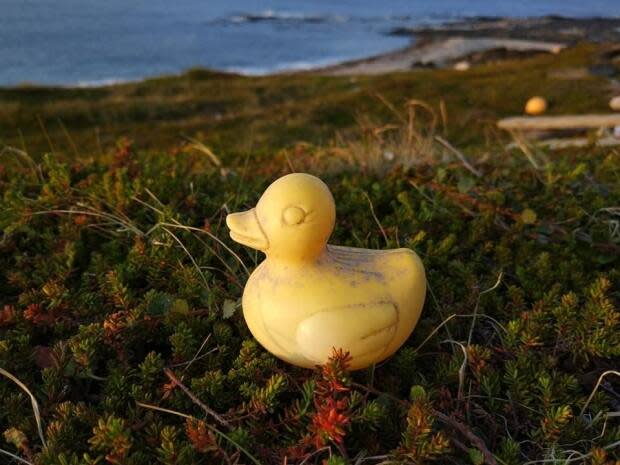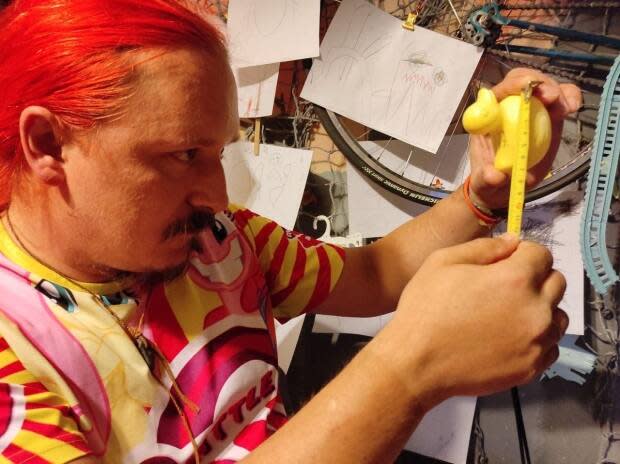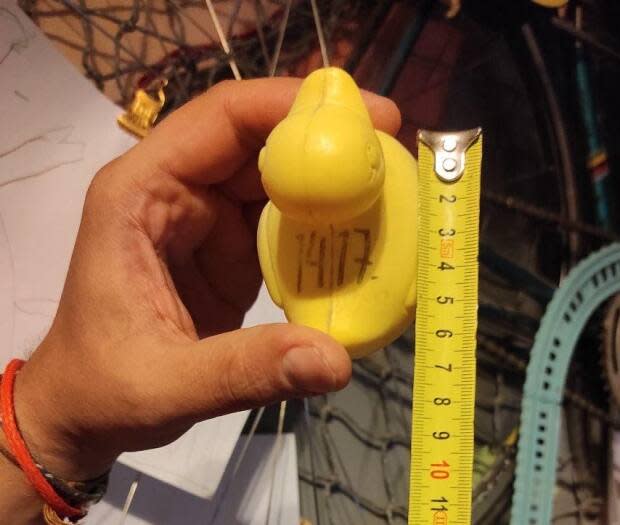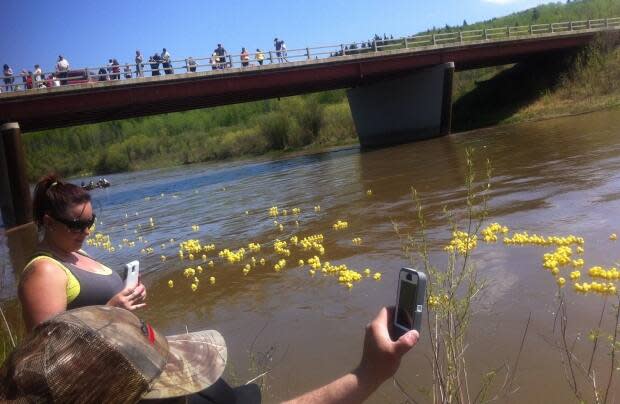This rubber duck started a river race in Alberta and washed ashore in Russia

If rubber ducks could talk, one in particular would have an amazing adventure to tell.
Two years ago, Vladimir Matusevitch was on holiday on the Arctic shores of the Rybachy Peninsula in northwestern Russia.
Resting among the beach rocks, he noticed a grubby rubber duck inscribed with the number 1417.
"It's a strange thing to find," he told CBC Edmonton's Radio Active from his home in Moscow.
Matusevitch said he realized it was from a duck race — a festival where thousands of rubber ducks are released into a river for charity — but didn't know any in the area.
"There are not such great duck races in Russia," he said.
Rubber duck's Russian getaway
Matusevitch decided to find out where the duck came from. He sent hundreds of emails and Facebook messages to duck races around the world.
He even set up a Facebook page to find the duck's home port.
"It was a fun thing to do," he said.
'That's our duck'
It wasn't until this summer that Monika Iverson, organizer of the Ardmore Duck Race in Ardmore, Alta., 260 kilometres northeast of Edmonton, noticed Matusevitch's Facebook message from 2019.
"And I said, 'Hey, yeah, that's our duck,'" Iverson said.

Iverson said she knows the duck is from Alberta because she recognizes her own handwriting.
"My ones have a tail on the top and the sevens have a dash across."
She said it's not a common way to write numbers.
"I'm 150 per cent [sure] that's our duck."
Iverson reckons the duck went into the water June 4, 2017. She remembers a duck with a similar number going missing that year.
Matusevitch found duck No. 1417 on Aug. 16, 2019.
The Ardmore Duck Race has been held annually for three decades on the Beaver River, which flows into the Churchill River and eventually dumps into Hudson Bay.
While the race generally has 2,000 ducks to raise funds for the local school, Iverson said it's rare for one to go missing since the local fire department helps gather the ducks afterward.
How a rubber duck sailed to Russia
After duck 1417 splashed into the sea, it most likely floated counterclockwise in the Hudson Bay, across the mouth of James Bay to the Hudson Strait, said Paul Myers, an ocean current expert at the University of Alberta.

It then likely hooked around Quebec into the Labrador Sea, hitting the Gulf Stream around St. John's.
It then sped between Iceland and Scotland, travelling up the Norwegian coast until it landed on the Arctic shores of Russia, said Myers.
The trip would have been more than 10,000 kilometres long, he said.
It's possible that during the voyage, the duck may have got lodged in sea ice in Hudson Bay and even bobbed beside icebergs near Newfoundland and Labrador.
While it might seem weird for the duck to have travelled from Alberta to Russia, Myers said it would have followed a fairly normal set of currents.
"I'm more surprised the duck survived," he said. "You know, it didn't sink because of waves."
Matusevitch said he never expected to discover the rubber duck originated from interior Canada.
"I am amazed. Wow!"

Iverson said the Ardmore community may eventually put a book together, written by local kids on what the duck could have encountered during its adventure. Proceeds from the project would be donated to the local school.
"It's astronomical, the sort of thing that this duck must have had to go through," said Iverson.
"This story shows how small the world really is."
Iverson and Matusevitch are in negotiations for the duck's eventual return to Alberta.
"The duck will probably never see water again, but it will definitely have a very special place of honour in our school," said Iverson.

